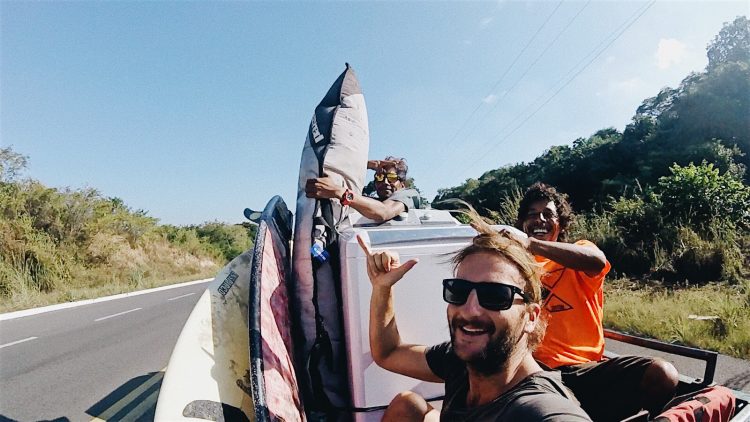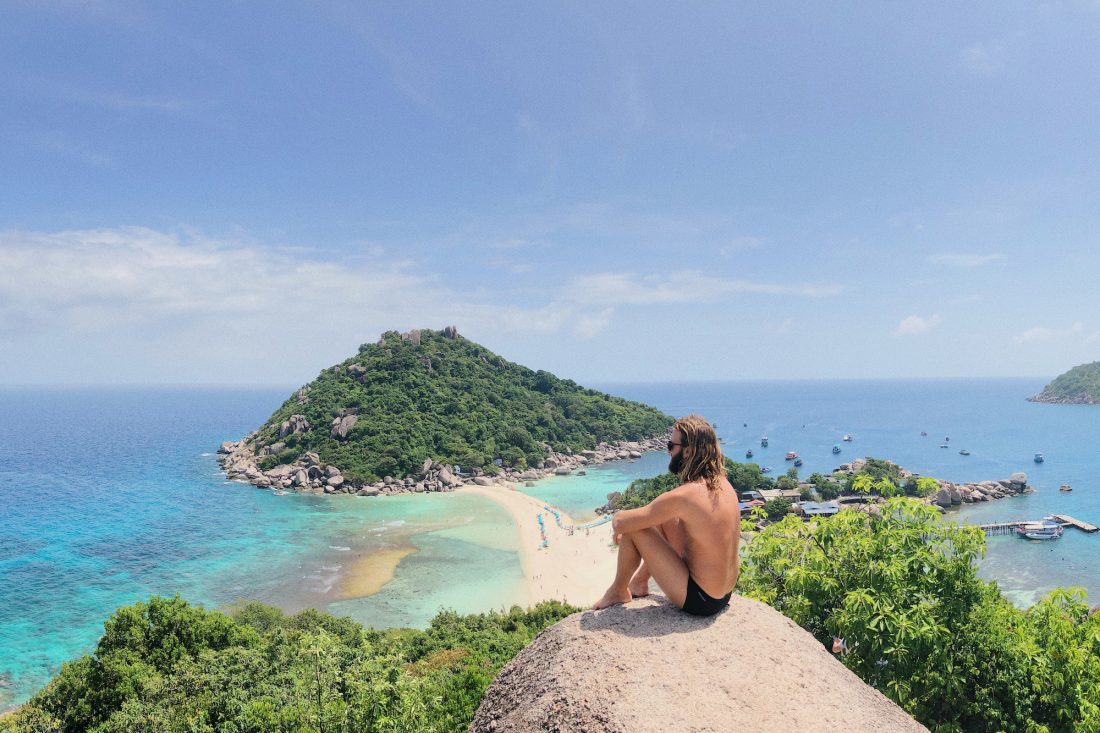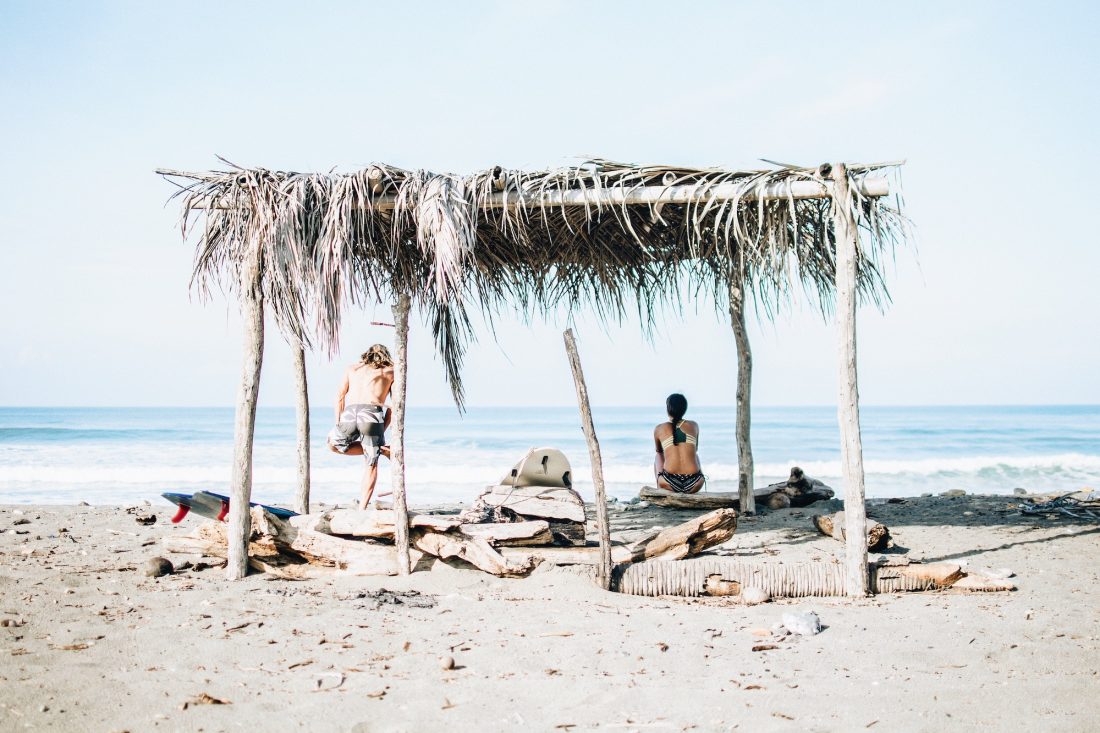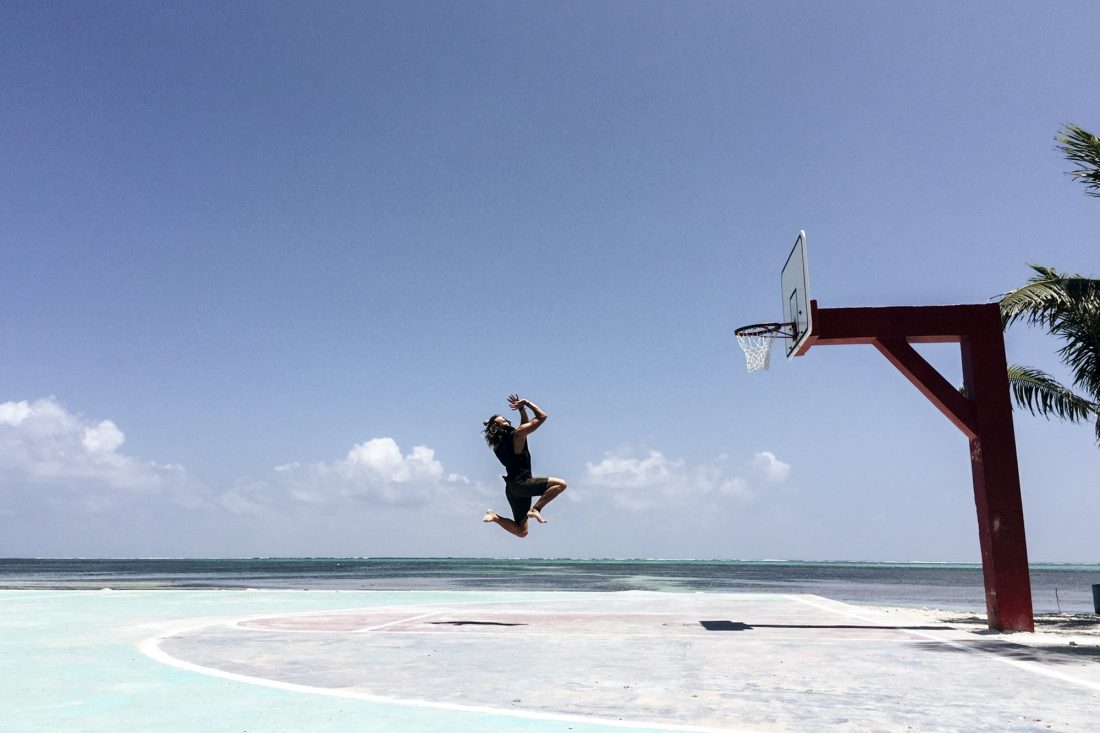
How to travel on savings
“I regret spending money on that epic, life-changing trip”
– said no one ever
Are you planning a trip but are worried about not having enough cash to last? We’ve been on the road now for a while and know exactly what it’s like travelling on nothing but savings. And with cash funds running low, what better time than now to write about ‘how to travel on savings’.
If you’ve read our other post ‘How to save enough money for any trip’ you will know that we haven’t worked during our travels and have been relying solely on savings. You can learn plenty from other travellers on money saving tips and you will most likely be fairly reckless when it comes to spending money during the first weeks of your trip. With a few practical tips we will show you how you can last months, even years longer on the road than what you had originally planned.
Even if you start your trip with a decent amount of cash saved up, you will learn so much and look at money completely differently once you get into a rhythm and try to stretch that cash. The biggest thing you need to know right now is, “you don’t need to be rich to travel”.
Here are some of the tips we’ve picked up along the way to help stretch the travel funds and in some cases even travel for free, let us show you how:
⁃Travel by bus; we’ve spent hundreds of hours on bus travel all around the world, even 20hour plus bus rides for a single journey – common throughout South America. Sounds uncomfortable but bus transport should be your preference for all long distance travel and is way cheaper than flying. Generally there isn’t much difference in cost between a decent bus and a crappy one – so spend a little extra and get a good seat with heaps of leg room. Unlike flying, buses don’t require check-in hours prior to a flight, there are no long lines at security gates, fewer delays and leaves a much smaller carbon footprint. We often even look forward to a long journey as it gives you time to just sit, relax and do nothing – maybe catch up on a book, watch a doco, even write this post for the blog,
⁃Get cheap flights; if bus travel isn’t possible, Skyscanner should be your source to search for flights and get the best price. The “everywhere” search feature on Skyscanner is good and not found on most other competing search engines – this often helps in selecting cheaper destinations for a layover. And if you aren’t in any rush, why not try a layover in a new city you’ve never visited, often cheaper than most direct flights and gives you a new experience. We also like Googleflights, it consistently compares cheap available flights from all the airlines big and small and offers alternate dates and airports close to the sleeted date for cheaper travel,
⁃Travel in low season; now we don’t condone trespassing by any means, but, one of the perks with low season is you can sometimes sneak into nice hotels and use their facilities when no-one is around. The photo taken at the top of this blog post is from a recent session of pool hopping to numerous empty holiday villas on the beach. You can feel like a luxury guest for free. Low season means fewer crowds, more availability and better rates. It may not always be the perfect weather you wanted but the cultural experience is far better as the locals will really appreciate you being there and it is far easier to get around not having to hustle for a room to sleep and seats on transport,
⁃Stay with locals; most people discover this towards the end of their trips from other travellers after staying many nights in hostels, but this is one of the best money saving pieces of advice. Keep an eye out for local family homes who have rooms for rent. They are often quite happy to have you for only a night or even can negotiate super cheap deals for more than a week’s stay. The rooms are usually fairly basic and have a private bathroom. It’s a cheap, friendly, quiet and safe alternative. For free stays also checkout Couchsurfing – you won’t always be on the couch, often private rooms or shared bedding is provided. Couchsurfing is free but you usually offer to cook a meal or help clean up for the host in return for accommodation,
⁃Check hostel prices; not all hostels are the cheapest option around. Research the pricing through Booking before arriving. Hostels provide a good base to meet new people and have some fun, so sometimes you might pay a little more to have this experience and meet other travellers. Try sleeping in larger dorm rooms to get the cheapest price but be aware of all night parties in some bigger hostels and people snoring, it can slowly take a toll after a while. This might not bother you at the start of your travels but after a while you might like to get your own space – so be sure to have a backup just in case,
⁃Book a private room not a hotel; if your backup is a hotel, try booking a private room through Airbnb instead. The Airbnb contact is usually local so they can provide good tips on where to eat and what to do for cheap. Airbnb offer both private and shared accommodations depending on your budget,
⁃Eat like a local; never eat where there is a hype of tourists, if there is a waiter outside trying to drag you into his restaurant, chances are the food is expensive and targeted at westerners. Look for the smaller restaurants with a few locals or why not try some cultural food at the markets – cheap and good too,
⁃Cook for yourself; the local markets offer way too much cheap goodness to pass up. Stay somewhere with a decent kitchen, stock up with plenty of veggies and eat at home. What you will spend on food from the markets for one week would normally be the equivalent of buying two or three meals from a restaurant,

⁃Hitch hike; check out the area first to make sure it’s safe and ask around. But, if you get the chance – hitch hike, even if its for a quick trip to the market or to go surfing. A ride in the back of a truck is always better than being crammed into a van, plus it doesn’t cost a thing to ask, or ride,
⁃Ride the local transport; avoid taxis whenever possible. The local bus and van transport can take a while to arrive at a destination but at least you can enjoy some local culture on the way for a small cost,
⁃Travel light; transport companies love charging extra for excess baggage. Not only is light and compact baggage more convenient to travel, it will also save you big bucks,
⁃Take overnight buses; if you have a long distance to cover between cities, travel overnight and save on a nights accommodation,
⁃Exchange money carefully; never exchange all your money in the airport. You only need a small amount of local currency when arriving in a new country – just enough for transport. Find the nearest bank and either exchange whatever currency you have or withdraw local currency at the ATM. It’s also good to have emergency US Dollars hidden away somewhere as this is accepted in most countries,
⁃Talk to the locals; be friendly and chat with them. Sometimes, they might tell you where the cheap and good eateries are and usually in smaller towns some may even offer you to stay over,
⁃Take advantage of free walking tours; most larger cities will have free walking tours to learn about the city, get your bearings, and see the major sights. Most hostels advertise details on these tours with times and meeting locations,
⁃Trade work for food and lodging; work behind the desk at a hostel, teach english to school kids, help build housing in villages. Generally no skills are needed for this type of work and the rewards are priceless. Workaway hosts a large diverse range of job opportunities with most providing a bed and a couple of meals each day for a few days work per week,
⁃Limit alcohol; save bulk by giving up alcohol. It can be tough when traveling and especially when staying at hostels. You might be persuaded to go out for a few drinks and this can often ended up in an all night long bender – waking up the next morning to realise you’ve well and truly blown your daily budget. Alcohol drains the pocket of cash and if you can limit this it will add plenty of time to your trip,
⁃Don’t rush; many prices are based on supply and demand, it works in your favour if you aren’t in a hurry to get somewhere and have the flexibility to leave the day before (or after) instead, when it’s much cheaper. Look around the dates of your travel plans and see if spending an extra day is worth it. This makes a difference especially around major holidays,
⁃Don’t buy souvenirs; what might seem a good idea at the time can often become a hindrance and regrettable expense later on. Try not to be talked into buying hammocks and paintings, etc. from artists in the street. It’s not worth lugging these around in your backpack taking up useless space and expense. If you need to it’s better to wait to the end of your trip. That way you don’t need to carry them the whole time and you know exactly what you can afford,
These tips are good for any destination – no matter where you go in the world, there are always ways to save. It is true that generally travel in the more developed parts of the world is more expensive, but if you have the time and smarts it can also be done on the cheap. Media portrays that travel is expensive oyr my recent experiences have taught us otherwise.
Travel is something that almost everyone wants to do more of, but few ever manage to make – money shouldn’t be an excuse for not making this happen.
iPhone Photos by LovaLinda and Mitch Daley





